Presentation Slides
Chinese Medicine Research Hub
Review Article
Ziziphus jujuba and its main components, lupeol and betulinic acid, show promise in treating complications of metabolic syndrome, including diabetes, obesity, and hypertension.
2024 Current Nutrition Reports Ziziphus jujuba (Jujube) in Metabolic Syndrome: From Traditional Medicine to Scientific Validation
Ghasemzadeh Rahbardar M, Fazeli Kakhki H, Hosseinzadeh H
Chinese Medicine Research Hub
Review Article
Soy protein, bioactive peptides, and isoflavones are generally safe for consumption and may help reduce the risk of several significant health conditions.
2023 PharmaNutrition Soy protein, bioactive peptides, and isoflavones: A review of their safety and health benefits
Tan ST, Tan SS, Tan CX
Chinese Medicine Research Hub
Systematic Review
Natural calcium-rich mineral waters offer a bioavailable calcium source, beneficial for bone health, cardiovascular function, weight management, and overall well-being.
2023 Nutrients Exploring the Potential Benefits of Natural Calcium-Rich Mineral Waters for Health and Wellness: A Systematic Review
Pop MS, Cheregi DC, Onose G, Munteanu C, Popescu C, Rotariu M, Turnea MA, Dograru G, Ionescu EV, Oprea D, Iliescu MG, Minea M, Stanciu LE, Silișteanu SC, Oprea C
Chinese Medicine Research Hub
Randomised Controlled Trial
Consumption of blueberry powder daily improves vascular function, cognitive abilities, and reduces blood pressure in healthy older individuals.
2023 The American Journal of Clinical Nutrition Wild blueberry (poly)phenols can improve vascular function and cognitive performance in healthy older individuals: a double-blind randomized controlled trial
Wood E, Hein S, Mesnage R, Fernandes F, Abhayaratne N, Xu Y, Zhang Z, Bell L, Williams C, Rodriguez-Mateos A
Chinese Medicine Research Hub
Review Article
Sardines, being an affordable source of Omega-3 and other cardioprotective nutrients, can potentially reduce the need for Omega-3 supplementation and manage cardiometabolic diseases.
2023 Frontiers in Nutrition Eating more sardines instead of fish oil supplementation: Beyond omega-3 polyunsaturated fatty acids, a matrix of nutrients with cardiovascular benefits
Santos HO, May TL, Bueno AA
Chinese Medicine Research Hub
Clinical Study
Consuming a honey-based gel, such as 'Bear Strength honey gel,' led to a notable reduction in diastolic and mean arterial blood pressure, with gender-specific improvements in redox status among healthy adults.
2023 Biomedical Reports Evaluation of the effects of a honey‑based gel on blood redox biomarkers and the physiological profile of healthy adults: A pilot study
Patouna A, Sevdalis P, Papanikolaou K, Kourti M, Skaperda Z, Jamurtas A, Kouretas D
Chinese Medicine Research Hub
Cohort Study
Heavy coffee consumption increases the risk of cardiovascular disease mortality in individuals with severe hypertension, while green tea consumption does not.
2023 Journal of the American Heart Association Coffee and Green Tea Consumption and Cardiovascular Disease Mortality Among People With and Without Hypertension
Teramoto M, Yamagishi K, Muraki I, Tamakoshi A, Iso H
Chinese Medicine Research Hub
Network Pharmacology
Two varieties of chrysanthemum have similar therapeutic effects but operate through distinct mechanisms, revealing potential for precise applications in both traditional and modern medicine.
2022 International Journal of Molecular Sciences Comparison of the Chemical Components, Efficacy and Mechanisms of Action of Chrysanthemum morifolium Flower and Its Wild Relative Chrysanthemum indicum Flower against Liver-Fire Hyperactivity Syndrome of Hypertension via Integrative Analyses
Wang Y, Li Y, Guo W, Yang X, Qu J, Gao M, Chen S, Dong J, Li Q, Wang T
Chinese Medicine Research Hub
Systematic Review
Acupuncture, when combined with lifestyle changes, can effectively lower blood pressure in grade 1 hypertension patients with fewer side effects
2022 Complementary Therapies in Medicine Association between acupuncture and grade 1 hypertension: A systematic review and meta-analysis
Zhang M, Zhu Y, Wang J, Li Y, Hua Z
Chinese Medicine Research Hub
Randomised Controlled Trial
Pomegranate extract consumption improves antioxidant levels, reduces oxidative stress and cardiovascular risk factors including blood pressure and body fat, and increases lean body mass.
2022 Antioxidants Antioxidant Properties and Beneficial Cardiovascular Effects of a Natural Extract of Pomegranate in Healthy Volunteers: A Randomized Preliminary Single-Blind Controlled Study
Al-Dujaili EAS, Casey C, Stockton A
Chinese Medicine Research Hub
Meta-Analysis
Consumption of broccoli sprouts significantly lowers blood pressure, potentially due to properties of sulforaphane.
2022 Jundishapur Journal of Natural Pharmaceutical Products Beneficial Effects of Sulforaphane-Yielding Broccoli Sprout on Cardiometabolic Health: A Systematic Review and Meta-analysis
Houshialsadat Z, Mirmiran P, Zare-Javid A, Bahadoran Z, Houghton C
Chinese Medicine Research Hub
Review Article
Coconut water possesses unique compound profiles that imbue it with a broad spectrum of medical properties, incorporating aspects of nutrition, pharmacology, and disease prevention.
2022 Reference Series in Phytochemistry Health Benefits of Coconut Water
Rethinam P, Krishnakumar V
Chinese Medicine Research Hub
Cohort Study
Consumption of sardines can effectively prevent type 2 diabetes mellitus and hypertension, particularly in senior citizens, due to their high omega 3, EPA, and DHA content.
2021 Muhammadiyah International Public Health and Medicine Proceeding The Benefits of Consuming Sardines to Prevent Hypertension and Type 2 Diabetes Mellitus for Senior Citizens
Nurdiana Febriyanti V
Chinese Medicine Research Hub
Cohort Study
Sardines are highly proven to be able to effectively prevent type 2 diabetes, prevent hypertension, and lower blood pressure, especially for senior citizens.
2021 Muhammadiyah International Public Health and Medicine Proceeding The Benefits of Consuming Sardines to Prevent Hypertension and Type 2 Diabetes Mellitus for Senior Citizens
Nurdiana Febriyanti V
Chinese Medicine Research Hub
Experimental Study
Tiger nut and walnut supplementation in diets can improve testosterone levels and help control vasoconstriction, potentially benefiting hypertensive individuals.
2021 Nutrients Cyperus esculentus L. and Tetracarpidium conophorum Müll. Arg. Supplemented Diet Improved Testosterone Levels, Modulated Ectonucleotidases and Adenosine Deaminase Activities in Platelets from L-NAME-Stressed Rats
Olabiyi AA, Morsch VM, Oboh G, Schetinger MRC
Chinese Medicine Research Hub
Randomised Controlled Trial
Pomegranate extract supplement shows potential in improving glycemic indicators, serum lipids, anthropometrics, and blood pressure in patients with nonalcoholic fatty liver disease.
2021 Phytotherapy Research The effect of pomegranate extract on anthropometric indices, serum lipids, glycemic indicators, and blood pressure in patients with nonalcoholic fatty liver disease: A randomized double‐blind clinical trial
Goodarzi R, Jafarirad S, Mohammadtaghvaei N, Dastoorpoor M, Alavinejad P
Chinese Medicine Research Hub
Systematic Review
Isoflavones found in soybeans can reduce risks of certain cancers and alleviate menopause-related symptoms among women, such as vasomotor syndromes, spinal bone loss, and hypertension.
2021 International Journal of Molecular Sciences Utilization of Isoflavones in Soybeans for Women with Menopausal Syndrome: An Overview
Chen LR, Chen KH
Chinese Medicine Research Hub
Systematic Review
This study showed that the intervention time was concentrated at 4–8 weeks, mainly through Chinese herbal medicine for the prevention and treatment of elderly hypertension and the complications.
2020 Evidence-Based Complementary and Alternative Medicine Traditional Chinese Medicine for Essential Hypertension: A Clinical Evidence Map
Zhang Y, Wang B, Ju C, Liu L, Zhu Y, Mei J, Liu Y, Xu F
Chinese Medicine Research Hub
Systematic Review
The literature overall supports an inverse association between green tea and cardiovascular disease-related health outcomes, while the included meta-analyses generally suggested an inverse association between green tea and BMI-related and blood pressure outcomes.
2020 European Journal of Clinical Nutrition Green tea and cancer and cardiometabolic diseases: a review of the current epidemiological evidence
Abe SK, Inoue M
Chinese Medicine Research Hub
Systematic Review
The study shows the promising potential of Suan Zao Ren as a multi-effect traditional Chinese medicine derived from the seeds of Ziziphus Jujuba.
2020 Evidence-Based Complementary and Alternative Medicine Botanical and Traditional Uses and Phytochemical, Pharmacological, Pharmacokinetic, and Toxicological Characteristics of Ziziphi Spinosae Semen: A Review
Su-Rong He, Chong-Bo Zhao, Jing-Xia Zhang, Jing Wang, Bo Wu, Chun-Jie Wu,
Chinese Medicine Research Hub
Meta-Analysis
Chronic consumption of cranberry or cherry juice might considerably improve blood pressure levels.
2020 European Journal of Nutrition Effects of chronic consumption of specific fruit (berries, citrus and cherries) on CVD risk factors: a systematic review and meta-analysis of randomised controlled trials
Wang Y, Gallegos JL, Haskell-Ramsay C, Lodge JK
Chinese Medicine Research Hub
Systematic Review
Almond intake significantly decreased diastolic blood pressure, and inconsistently, almonds decreased systolic blood pressure.
2020 Complementary Therapies in Medicine The effect of almond intake on blood pressure: A systematic review and meta-analysis of randomized controlled trials
Eslampour E, Asbaghi O, Hadi A, Abedi S, Ghaedi E, Lazaridi AV, Miraghajani M
Chinese Medicine Research Hub
Systematic Review
Cinnamon supplementation can improve blood pressure by a modest degree.
2020 Clinical Nutrition ESPEN The effect of cinnamon supplementation on blood pressure in adults: A systematic review and meta-analysis of randomized controlled trials
Hadi A, Campbell MS, Hassani B, Pourmasoumi M, Salehi-sahlabadi A, Hosseini SA
Chinese Medicine Research Hub
Systematic Review
Almond consumption was found to significantly reduce systolic blood pressure.
2020 Journal of King Saud University - Science The effect of almonds consumption on blood pressure: A systematic review and dose-response meta-analysis of randomized control trials
Li Z, Bhagavathula AS, Batavia M, Clark C, Abdulazeem HM, Rahmani J, Yin F
Chinese Medicine Research Hub
Clinical Study
Green tea intake can significantly reduce both systolic and diastolic blood pressure.
2020 Medicine Effect of green tea supplementation on blood pressure
Xu R, Yang K, Ding J, Chen G
Chinese Medicine Research Hub
Systematic Review
Cinnamon supplementation has favorable effects on diastolic blood pressure and long-term effects on systolic blood pressure.
2020 Endocrine, Metabolic & Immune Disorders - Drug Targets What is the Impact of Cinnamon Supplementation on Blood Pressure? A Systematic Review and Meta-Analysis
Hadi A, Campbell MS, Hassani B, Pourmasoumi M, Salehi-Sahlabadi A, Hosseini SA.
Chinese Medicine Research Hub
Randomised Controlled Trial
Consuming walnuts daily can reduce cardiovascular risk factors in chronic kidney disease patients without altering significant physiological levels.
2019 Nutrients A Pilot Randomized Crossover Trial Assessing the Safety and Short-Term Effects of Walnut Consumption by Patients with Chronic Kidney Disease
Sanchis P, Molina M, Berga F, Muñoz E, Fortuny R, Costa-Bauzá A, Grases F, Buades JM
Chinese Medicine Research Hub
Randomised Controlled Trial
Acupuncture therapy does not impact the severity of Obstructive Sleep Apnea, blood pressure, or quality of life in hypertensive patients.
2019 Journal of Sleep Research Effects of acupuncture on obstructive sleep apnea severity, blood pressure control and quality of life in patients with hypertension: A randomized controlled trial
Silva MVFP, Lustosa TC, Arai VJ, Couto Patriota TLG, Lira MPF, Lins‐Filho OL, Chalegre ST, B.B.A.S. K, Secundo IV, Pedrosa RP
Chinese Medicine Research Hub
Experimental Study
Pu-erh tea's ability to lower blood pressure is primarily due to theabrownins and caffeine, which cause vasodilation irrespective of the endothelium.
2019 Frontiers in Pharmacology Pu-Erh Tea Relaxes the Thoracic Aorta of Rats by Reducing Intracellular Calcium
Luo Dan, Chen Xuejiao, Zhu Xu, Liu Shuang, Li Jie, Xu Jianping, Zhao Jinhua, Ji Xu
Chinese Medicine Research Hub
Randomised Controlled Trial
Synbiotic pomegranate juice daily consumption for 8 weeks enhances metabolic, oxidative, inflammatory, and blood pressure outcomes in females with Polycystic Ovarian Syndrome.
2019 Journal of Endocrinological Investigation The effect of synbiotics pomegranate juice on cardiovascular risk factors in PCOS patients: a randomized, triple-blinded, controlled trial
Esmaeilinezhad Z, Barati-Boldaji R, Brett NR, de Zepetnek JOT, Bellissimo N, Babajafari S, Sohrabi Z
Chinese Medicine Research Hub
Systematic Review
Cinnamon supplementation leads to a significant reduction in both systolic and diastolic blood pressure in adults.
2019 Critical Reviews in Food Science and Nutrition Anti-hypertensive effects of cinnamon supplementation in adults: A systematic review and dose-response Meta-analysis of randomized controlled trials
Seyed Mohammad Mousavi, Ahmad Jayedi, Yahya Jalilpiran, Maryam Hajishafiee, Azadeh Aminianfar, Ahmad Esmaillzadeh.
Chinese Medicine Research Hub
Systematic Review
Drinking certain types of mineral water can positively influence metabolic syndrome factors like blood pressure, cholesterol, and blood sugar levels.
2019 Nutrients Metabolic Syndrome Features: Is There a Modulation Role by Mineral Water Consumption? A Review
Costa-Vieira D, Monteiro R, Martins MJ
Chinese Medicine Research Hub
Systematic Review
Acupuncture as an adjunctive therapy has antihypertensive effect.
2019 International Journal of Hypertension The Mechanism of Acupuncture in Treating Essential Hypertension: A Narrative Review
Juan Li ,1 Mingsheng Sun ,2 Jing Ye,2 Yuxi Li ,2 Rongjiang Jin ,1 Hui Zheng ,2 and Fanrong Liang 2
Chinese Medicine Research Hub
Systematic Review
Consumption of virgin avocado oil, rich in monounsaturated fatty acids and bioactive components, may help manage chronic diseases like hypertension, diabetes, and lower cardiometabolic risk.
2019 Journal of Functional Foods Virgin avocado oil: An emerging source of functional fruit oil
Tan CX
Chinese Medicine Research Hub
Randomised Controlled Trial
Daily consumption of tart cherry juice for 12 weeks showed anti-oxidative and anti-inflammatory properties which may reduce blood pressure and lower LDL cholesterol in older adults.
2019 Nutrients Effects of Tart Cherry Juice on Biomarkers of Inflammation and Oxidative Stress in Older Adults
Chai S, Davis K, Zhang Z, Zha L, Kirschner K
Chinese Medicine Research Hub
Randomised Controlled Trial
Consuming two SunGold kiwifruits daily over 12 weeks improved vitamin C status, reduced blood pressure, waist measurements and altered faecal microbiota composition in prediabetic individuals.
2018 Nutrients SunGold Kiwifruit Supplementation of Individuals with Prediabetes Alters Gut Microbiota and Improves Vitamin C Status, Anthropometric and Clinical Markers
Wilson R, Willis J, Gearry R, Hughes A, Lawley B, Skidmore P, Frampton C, Fleming E, Anderson A, Jones L, Tannock G, Carr A
Chinese Medicine Research Hub
Practice Guideline
Long-chain omega-3 polyunsaturated fatty acids have various health benefits for postmenopausal women including reducing triglycerides and improving depression and psychotic symptoms.
2017 Maturitas Recommendations of the Spanish Menopause Society on the consumption of omega-3 polyunsaturated fatty acids by postmenopausal women
Sánchez-Borrego R, von Schacky C, Osorio MJA, Llaneza P, Pinto X, Losa F, Navarro MC, Lubián D, Mendoza N
Chinese Medicine Research Hub
Systematic Review
Cocoa consumption has strong beneficial impacts on cardiovascular health, reducing blood pressure, improving vascular function, and modulating lipid and glucose metabolism.
2017 Frontiers in Nutrition Cocoa, Blood Pressure, and Vascular Function
Ludovici V, Barthelmes J, Nägele MP, Enseleit F, Ferri C, Flammer AJ, Ruschitzka F, Sudano I
Chinese Medicine Research Hub
Systematic Review
Of the 7 clinical trials included, five evaluating individuals with hypertension observed a significant reduction in systolic and/or diastolic blood pressure. The two articles that evaluated individuals with dyslipidemia showed improvement in lipid profile.
2017 Critical Reviews in Food Science and Nutrition The effect of dietary intake of sesame (Sesamumindicum L.) derivatives related to the lipid profile and blood pressure: A systematic review
Carolina Alves Cardoso, Gláucia Maria Moraes de Oliveira, Luciana de Almeida Vittori Gouveia, Annie Seixas Bello Moreira & Glorimar Rosa
Chinese Medicine Research Hub
Systematic Review
Avocado, with its lipid-lowering, antihypertensive, antidiabetic, anti-obesity, and cardioprotective effects, can potentially manage metabolic syndrome more efficaciously than synthetic treatment options.
2017 Phytotherapy Research Effects of Avocado (Persea americana)on Metabolic Syndrome: A Comprehensive Systematic Review
Tabeshpour J, Razavi BM, Hosseinzadeh H
Chinese Medicine Research Hub
Randomised Controlled Trial
Montmorency tart cherry juice intake can significantly lower systolic blood pressure in men with early hypertension, with improvements linked to phenolic acids.
2016 The American Journal of Clinical Nutrition Effects of Montmorency tart cherry (Prunus Cerasus L.) consumption on vascular function in men with early hypertension
Keane KM, George TW, Constantinou CL, Brown MA, Clifford T, Howatson G
Chinese Medicine Research Hub
Randomised Controlled Trial
Dietary omega-3 intake shows promise in lowering systolic blood pressure.
2016 The Journal of Nutrition Consumption of Fish Oil Providing Amounts of Eicosapentaenoic Acid and Docosahexaenoic Acid That Can Be Obtained from the Diet Reduces Blood Pressure in Adults with Systolic Hypertension: A Retrospective Analysis
Minihane AM, Armah CK, Miles EA, Madden JM, Clark AB, Caslake MJ, Packard CJ, Kofler BM, Lietz G, Curtis PJ, Mathers JC, Williams CM, Calder PC
Chinese Medicine Research Hub
Systematic Review
There is evidence of efficacy of acupuncture as an adjunctive therapy to western medicine for treating hypertension.
2015 PLOS One Is Acupuncture Effective for Hypertension? A Systematic Review and Meta-Analysis
Zhao XF, Hu HT, Li JS, Shang HC, Zheng HZ, Niu JF, et al
Chinese Medicine Research Hub
Clinical Study
Daily consumption of blueberries may decrease blood pressure and arterial stiffness in postmenopausal women due to increased nitric oxide production.
2015 Journal of the Academy of Nutrition and Dietetics Daily Blueberry Consumption Improves Blood Pressure and Arterial Stiffness in Postmenopausal Women with Pre- and Stage 1-Hypertension: A Randomized, Double-Blind, Placebo-Controlled Clinical Trial
Johnson SA, Figueroa A, Navaei N, Wong A, Kalfon R, Ormsbee LT, Feresin RG, Elam ML, Hooshmand S, Payton ME, Arjmandi BH
Chinese Medicine Research Hub
Meta-Analysis
Acupuncture significantly lowers blood pressure in patients taking antihypertensive medications.
2014 Evidence-Based Complementary and Alternative Medicine Acupuncture for Essential Hypertension: A Meta-Analysis of Randomized Sham-Controlled Clinical Trials
Li DZ, Zhou Y, Yang YN, Ma YT, Li XM, Yu J, et al.
Chinese Medicine Research Hub
Randomised Controlled Trial
Pomegranate extract intake, rich in biophenols, lessens salivary cortisol levels, hence potentially improving health-related quality of life, particularly in stress-suffering individuals.
2014 Endocrine Abstracts Biophenols-rich pomegranate extract intake inhibits salivary cortisol and 11[beta]-HSD1 activity and improves overall quality of life scores in healthy volunteers
Stockton A, Al-Dujaili E
Chinese Medicine Research Hub
Clinical Study
Pomegranate juice intake for two weeks significantly reduces blood pressure and may improve heart health by lowering vascular endothelial adhesion molecule-1 levels.
2013 Phytotherapy Research Clinical Evaluation of Blood Pressure Lowering, Endothelial Function Improving, Hypolipidemic and Anti‐Inflammatory Effects of Pomegranate Juice in Hypertensive Subjects
Asgary S, Sahebkar A, Afshani MR, Keshvari M, Haghjooyjavanmard S, Rafieian‐Kopaei M
Chinese Medicine Research Hub
Systematic Review
Regular chocolate or cocoa consumption, rich in flavan-3-ols, has been associated with improved insulin resistance and blood vessel function, suggesting potential cardiovascular benefits.
2012 The American Journal of Clinical Nutrition Effects of chocolate, cocoa, and flavan-3-ols on cardiovascular health: a systematic review and meta-analysis of randomized trials
Hooper L, Kay C, Abdelhamid A, Kroon PA, Cohn JS, Rimm EB, Cassidy A
Chinese Medicine Research Hub
Cohort Study
Chocolate consumption appears to lower cardiovascular disease risk, in part through reducing blood pressure.
2010 European Heart Journal Chocolate consumption in relation to blood pressure and risk of cardiovascular disease in German adults
Buijsse B, Weikert C, Drogan D, Bergmann M, Boeing H
Chinese Medicine Research Hub
Randomised Controlled Trial
Drinking mineral water, especially those high in magnesium, helps lower blood pressure among individuals with borderline hypertension and low calcium or magnesium excretion.
2004 BMC Public Health Mineral water intake reduces blood pressure among subjects with low urinary magnesium and calcium levels
Rylander R, Arnaud MJ
Executive Summary
Write an executive summary in the form of a blog article on the topic of "Research into Chinese medicine treatment for High Blood Pressure" summarising the research below and using language that can be easily understood by patients and avoiding medical jargon using a professional and caring tone of voice.
Write an executive summary in the form of a blog article on the topic of "Researched Chinese medicine treatments for High Blood Pressure" summarising the research below in an objective and easy to understand way, and using language that can be easily understood by patients. Group the article into Chinese medicine treatments first, followed by nutrition and other treatments. Avoid using medical jargon and use a professional and caring tone of voice.
Write me a concise but easy to understand executive summary on the topic of "Chinese medicine treatments for High Blood Pressure" based on the following research that I will give you. Your summary should be 2 paragraphs long in Australian English spelling and include references to the studies.
A Review Article published in 2024 in the journal Current Nutrition Reports found that Ziziphus jujuba and its main components, lupeol and betulinic acid, show promise in treating complications of metabolic syndrome, including diabetes, obesity, and hypertension. The research assessed the properties of Ziziphus jujuba and its main bioactive agents, lupeol and betulinic acid, in relation to metabolic syndrome. Investigations focussed on their potential roles in glucose uptake enhancement, hepatic glucose synthesis reduction, insulin sensitivity improvement, and lipid profile modulation. Studies involved identifying the influence of these substances on key signaling pathways and insulin signaling proteins, as well as evaluating their anti-adipogenic effects and capacity to improve endothelial function.
Ziziphus jujuba and its constituents exhibited potential therapeutic benefits for metabolic syndrome by facilitating glucose uptake, reducing glucose synthesis, and improving insulin sensitivity. They also showed potential in moderating lipid synthesis and fat accumulation, demonstrating anti-fatty effects and a capacity to influence adipogenic enzymes and transcription factors. Moreover, these substances demonstrated enhanced endothelial function, reflecting positively on vascular health. These accumulative findings suggest promising potential for Z. jujuba, lupeol, and betulinic acid as natural treatments for metabolic syndrome complications.
A Review Article published in 2023 in the journal PharmaNutrition found that Soy protein, bioactive peptides, and isoflavones are generally safe for consumption and may help reduce the risk of several significant health conditions. Methodology: This review followed the Preferred Reporting Items for Systematic reviews and Meta-Analyses guidelines. It began with a sophisticated multi-database search, featuring resources like Google Scholar, Scopus, and others. This search targeted articles published from 2017 to March 2023 and used specific keywords for accuracy. Forty-three articles were handpicked from this process after excluding reviews, conference reports, duplicates, inaccessible texts, and any non-English publications.
Discussion of Results: A thorough examination of the chosen articles resulted in the conclusion that soy proteins, soy bioactive peptides, and soy isoflavones are typically safe for human consumption. Furthermore, it was found that the consumption of these compounds may have beneficial effects, potentially lowering risk factors for ailments such as osteoporosis, various cancers, hypertension, atherosclerosis, and more.
A Systematic Review published in 2023 in the journal Nutrients found that Natural calcium-rich mineral waters offer a bioavailable calcium source, beneficial for bone health, cardiovascular function, weight management, and overall well-being. This systematic review analyzed peer-reviewed articles, clinical trials, and experimental studies from the past decade. It focused on the health benefits of calcium-rich mineral waters, especially for individuals with lactose intolerance or on plant-based diets. The review process assessed the contribution of these waters to daily calcium intake and their bioavailability compared to other calcium sources.
The review found that natural mineral waters high in calcium can significantly enhance calcium intake, with improved absorption rates. These waters show promise in promoting bone health and cardiovascular function, including potential reductions in blood pressure and cardiovascular disease risk. Some evidence suggests benefits in weight management. However, the review highlighted the need for further research on interactions with other dietary components, effects on specific health conditions, and long-term consumption impacts. Despite these gaps, calcium-rich mineral waters are recognized as a valuable dietary calcium source for a diverse population.
A Randomised Controlled Trial published in 2023 in the journal The American Journal of Clinical Nutrition found that Consumption of blueberry powder daily improves vascular function, cognitive abilities, and reduces blood pressure in healthy older individuals. This double-blind, parallel randomized controlled trial engaged 61 healthy older individuals aged between 65 to 80 years old. Participants were given either 26g of freeze-dried wild blueberry (WBB) powder, comprising 302 mg anthocyanins, or a similar placebo with zero mg anthocyanins. Measurements were made for endothelial function, cognitive function, arterial stiffness, blood pressure, cerebral blood flow, gut microbiome, and blood parameters, both at the start of the trial and again following 12 weeks of daily consumption. In addition, plasma and urinary polyphenol metabolites were analyzed through the use of microelution solid-phase extraction combined with liquid chromatography-mass spectrometry.
In the WBB group, there was a notable increase in endothelial function and a decrease in 24-hour ambulatory systolic blood pressure, when compared to the placebo group. Enhanced immediate recall on the auditory verbal learning task was also observed, along with better accuracy on a task-switch task following administering of WBB. Notably, the total 24-hour urinary excretion of polyphenols also significantly increased in the WBB group comparative to the control group. In contrast, there were no discernible changes in cerebral blood flow or gut microbiota composition. These findings imply that WBB polyphenols could contribute to reducing future cardiovascular disease risk in older populations, and might enhance memory processes and executive functioning in older adults at risk of cognitive decline.
A Review Article published in 2023 in the journal Frontiers in Nutrition found that Sardines, being an affordable source of Omega-3 and other cardioprotective nutrients, can potentially reduce the need for Omega-3 supplementation and manage cardiometabolic diseases. The abstract primarily acknowledges the importance of Omega-3 polyunsaturated fatty acids with respect to managing diseases related to heart health and metabolism, for instance, type 2 diabetes, hypertension, hypertriglyceridaemia, and fatty liver disease. However, these fatty acids are not the sole beneficial component of sardines. Minerals including but not limited to calcium, potassium, and magnesium as well as substances like taurine and arginine found in sardines have a significant role in controlling mild inflammation and oxidative stress which are usually present in cardiovascular diseases and hemodynamic dysfunction.
The results discussed in the abstract suggest a positive correlation between consumption of sardines and potential cardiometabolic benefits. By considering the dose-response relationship effects, a pragmatic approach towards consumption of nutrients was suggested. The intake of sardines was seen not only as a means of Omega-3 supplementation but also as a comprehensive approach to enhancing cardiovascular health. The abstract concludes with an emphasis on the many beneficial nutrients found in sardines besides Omega-3, underlining the need to shift the focus from synthetic supplementation to natural dietary improvement.
A Clinical Study published in 2023 in the journal Biomedical Reports found that Consuming a honey-based gel, such as 'Bear Strength honey gel,' led to a notable reduction in diastolic and mean arterial blood pressure, with gender-specific improvements in redox status among healthy adults. The study included 20 healthy participants (10 men, 10 women) who incorporated 70g of 'Bear Strength honey gel' into their daily diet for 14 days. Physiological parameters (weight, height, BMI, body fat, waist-to-hip ratio, resting heart rate, and blood pressure) and hematological data were evaluated before and after consumption. Redox biomarkers, including Glutathione (GSH), catalase (CAT), total antioxidant capacity (TAC), protein carbonyls (PCARBS), and thiobarbituric reactive substances (TBARS), were measured.
Post-consumption, the honey-based gel showed a significant decrease in diastolic and mean arterial blood pressure, particularly in women. However, no significant changes were observed in other physiological or hematological variables. Notably, GSH levels increased in both genders, TAC increased universally, and TBARS levels decreased in the total group and women. PCARBS levels decreased exclusively in the women's group. These findings highlight the honey-based gel's potential positive impact on blood pressure and redox status, emphasizing gender-specific effects in healthy adults.
A Cohort Study published in 2023 in the journal Journal of the American Heart Association found that Heavy coffee consumption increases the risk of cardiovascular disease mortality in individuals with severe hypertension, while green tea consumption does not. With the use of the Japan Collaborative Cohort Study, researchers assessed 18,609 participants, both male and female, aged between 40 to 79 years. These participants had varying blood pressure levels, categorized into optimal and normal BP, high-normal BP, and two stages of hypertension. They completed a questionnaire about their lifestyle, diet, and medical history, and underwent health examinations, which were followed up until 2009. The association of coffee and green tea consumption on cardiovascular disease mortality was then calculated using a Cox proportional hazard model.
It was found over an 18.9 year follow-up period that heavy coffee consumption was linked to increased risk of cardiovascular disease mortality among those suffering from the second to third grade of hypertension. In stark contrast, people with optimal and normal, high-normal blood pressure and first grade hypertension did not show such associations between coffee consumption and cardiovascular disease mortality. Interestingly, the risk of cardiovascular disease mortality was not found to be increased across any blood pressure categories in relation to green tea consumption.
A Network Pharmacology published in 2022 in the journal International Journal of Molecular Sciences found that Two varieties of chrysanthemum have similar therapeutic effects but operate through distinct mechanisms, revealing potential for precise applications in both traditional and modern medicine. The study combined network pharmacology, molecular pharmacology, and metabolomics to clarify differences between two herbs, CMF and CIF. An initial analysis was carried out via HPLC-Q-TOF-MS which revealed distinct flavonoid constituents between CMF and CIF. These findings led researchers to make predictions about the possible biological processes responsible for the therapeutic effects of these herbs on LFHSH, including their influence on inflammatory response and fatty acid production.
Through a series of ELISA, molecular docking, Western blot, and metabolomics techniques, the research identified similar influences of CMF and CIF on blood pressure and resistance to tissue, organ and functional damage as well as dyslipidemia. Despite the similar outcomes, there was variation in their mechanism of action. Namely, these herbs uniquely influenced inflammatory response, various signaling pathways, lipid anabolism, the renin-angiotensin system, and metabolic abnormalities. Differing effects were believed to be due to each herb's unique regulatory capabilities which, despite the end effect similarities, offer unique pathways for effective medical application.
A Systematic Review published in 2022 in the journal Complementary Therapies in Medicine found that Acupuncture, when combined with lifestyle changes, can effectively lower blood pressure in grade 1 hypertension patients with fewer side effects This review analyzed 10 studies on acupuncture treatment for grade 1 hypertension. Acupuncture, in combination with lifestyle adjustments, was found to be more effective than lifestyle modification alone, placebo, or no treatment, resulting in reduced systolic and diastolic blood pressure with higher response rates. Adverse effects were mild.
A Randomised Controlled Trial published in 2022 in the journal Antioxidants found that Pomegranate extract consumption improves antioxidant levels, reduces oxidative stress and cardiovascular risk factors including blood pressure and body fat, and increases lean body mass. In the study, 24 healthy participants were divided into two groups: one consumed a natural standardized pomegranate extract, while the other, a placebo, in a randomized, single-blind placebo-controlled trial. Evaluations were conducted at baseline and post 14 and 28 days of the experiment, with variables including anthropometric measurements, blood pressure, pulse wave speed, body composition, as well as the levels of salivary and urinary cortisol, cortisone, total phenolics, antioxidant capacity, and lipid peroxidation.
The results indicated significant increases in urinary total phenolics excretion and antioxidant capacity after 14 and 28 days of pomegranate extract intake. By day 28, notable decreases were noted in systolic and diastolic blood pressure, pulse wave velocity, body fat and fat mass, and an increase in lean body mass. In terms of glucocorticoid levels, there was a marked decrease in saliva cortisol at day 28 in the morning for the pomegranate extract group, along with a decrease in the cortisol/cortisone ratio following 28 days of pomegranate extract intake at morning, noon, and evening. Reductions were also seen in urine free cortisol levels by day 14. These observations were unique to the pomegranate extract group, with no significant changes noted in the placebo group.
A Meta-Analysis published in 2022 in the journal Jundishapur Journal of Natural Pharmaceutical Products found that Consumption of broccoli sprouts significantly lowers blood pressure, potentially due to properties of sulforaphane. The research pulled from ten clinical trials studying human subjects' cardiometabolic health in relation to broccoli sprout supplementation. The literature used for this systematic review and meta-analysis was compiled from research found on Pubmed and Scopus up until June 2022, the range of studies spanned from 2004 to 2019. To create a valid comparison, seven of the clinical trials contained control groups.
Discussing the results, it was found that the intake of broccoli sprouts brought significant reductions in both systolic and diastolic blood pressures. In addition, minor changes in blood lipid biomarkers were also tracked when compared to their baseline levels. These results confirmed the vegetable's hypotensive properties and brought attention to the potential sulforaphane-dependent effects it holds, thus underlining broccoli sprouts' value in managing cardiometabolic diseases.
A Review Article published in 2022 in the journal Reference Series in Phytochemistry found that Coconut water possesses unique compound profiles that imbue it with a broad spectrum of medical properties, incorporating aspects of nutrition, pharmacology, and disease prevention. The study utilized comprehensive analysis to assess the chemical profile of coconut water, identifying a range of components including phytohormones, enzymes, antioxidant compounds, vitamins, minerals, and phenolic compounds. These components are known to contribute to the water's biological activity and pharmacological effects, thereby enabling a raft of medicinal properties inherent to coconut water. The water was found to feature anti-microbial, anti-bacterial, anti-inflammatory, anti-hypertensive, rejuvenating, hepatoprotective, hypolipidemic, and diuretic properties.
An examination of the therapeutic effects of coconut water revealed a significant impact on gastric dysfunction, dysentery, and child malnutrition alongside notable capabilities to manage hypertension. The water was found to promote exercise performance, reduce swelling, dissolve kidney stones, improve kidney function, improve digestion, relieve constipation, reduce the risk of heart disease, lower high blood pressure, and improve cholesterol levels. Consumption of tender coconut water was specifically found to reduce the risk of heart disease, help prevent Alzheimer’s disease pathologies and prevent osteoporosis in experimental animals. The unique nutritional profile of coconut water was also found to provide it with the capacity to balance body chemistry and fight cancer.
A Cohort Study published in 2021 in the journal Muhammadiyah International Public Health and Medicine Proceeding found that Consumption of sardines can effectively prevent type 2 diabetes mellitus and hypertension, particularly in senior citizens, due to their high omega 3, EPA, and DHA content. For the methodology, the researchers carried out a literature study to delve into the research topic. They exclusively used already available research and data for their study rather than new, hands-on investigations. They explored extensively into the health benefits and properties of sardines and how it contributes to preventing type 2 diabetes and hypertension.
In their discussion of the results, it was determined that sardines have multiple beneficial properties. They discovered that sardines have anti-inflammatory and antioxidant roles, they enhance membrane fluidity and increase insulin receptors and action. Furthermore, sardines also possess hypoglycemic and hypotensive qualities. The multitude of these properties thus shows the capability of sardines to effectively prevent and lower hypertension and type 2 diabetes, especially among senior citizens.
A Cohort Study published in 2021 in the journal Muhammadiyah International Public Health and Medicine Proceeding found that Sardines are highly proven to be able to effectively prevent type 2 diabetes, prevent hypertension, and lower blood pressure, especially for senior citizens. Sardines contain anti-inflammatory, and antioxidant roles, boost cell membrane fluidity, boost the number of insulin receptors and insulin action, and also contain hypotensive and hypoglycemic effects.
A Experimental Study published in 2021 in the journal Nutrients found that Tiger nut and walnut supplementation in diets can improve testosterone levels and help control vasoconstriction, potentially benefiting hypertensive individuals. Rats were used in the experiment, placed into seven distinct groups with various diet and medicinal intake combinations including basal diet controls, supplemented processed and raw tiger nut (TN) and walnut (WN) diets, and more. Before hypertension was induced with L-NAME, the rats were given their regular diet for two weeks. After this period, they began receiving L-NAME for ten subsequent days. The scientists then measured the impacts on the rats' platelet androgen levels, ectonucleotidases, and adenosine deaminase (ADA).
The L-NAME treatment resulted in a considerable decline in testosterone levels in the rats. However, the groups that were fed diets supplemented with TN and WN exhibited improved testosterone levels compared to the control group, yet their luteinizing hormone levels remained unchanged.
The L-NAME-treated group also saw an increase in ATP hydrolysis and ADA activity, alongside a reduction in ADP and AMP hydrolysis. These effects were substantially reversed in the groups that were fed supplemented TN and WN diets. This suggests that TN and WN could enhance testosterone levels and modulate the purinergic system in platelets, which might be a potential mechanism through which they contribute to the control of vasoconstriction.
A Randomised Controlled Trial published in 2021 in the journal Phytotherapy Research found that Pomegranate extract supplement shows potential in improving glycemic indicators, serum lipids, anthropometrics, and blood pressure in patients with nonalcoholic fatty liver disease. The study involved 44 patients who had been diagnosed with nonalcoholic fatty liver disease. These individuals were randomly assigned to two groups, with one group receiving two pomegranate extract tablets daily over a period of 12 weeks, and the other a placebo. The researchers measured anthropometric values, serum lipid levels, blood pressure, and glycemic indicators before and after the intervention.
In their analysis of the outcomes, the researchers found that the group which received the pomegranate extract showed reductions in total cholesterol, triglyceride levels, the ratio of low-density lipoprotein cholesterol to high-density lipoprotein cholesterol, fasting blood sugar, resistance to insulin, diastolic blood pressure, weight, body mass index, and waist circumference when compared to the placebo group. Additionally, an increase in serum high-density lipoprotein cholesterol was observed within the pomegranate group, indicating the potential utility of this supplement in a treatment regimen for this condition.
A Systematic Review published in 2021 in the journal International Journal of Molecular Sciences found that Isoflavones found in soybeans can reduce risks of certain cancers and alleviate menopause-related symptoms among women, such as vasomotor syndromes, spinal bone loss, and hypertension. The study overviewed soybeans' chemical composition and focused mainly on isoflavones. The research examined the processes of soybean preparation that includes cleaning, drying, crushing, and dehulling, and extraction methods to derive various soy products, particularly focusing on isoflavones - daidzein, genistein, and S-equol. Various soy products such as refined soy oil, soy lecithin, free fatty acids, glycerol, and soybean meal were discussed, along with the presence of the minor biological constituents in remaining components.
The study explored the relationship between isoflavone consumption and disease prevention, particularly in relation to heart disease, cancer incidence—of the breast, bladder, and endometrial and colorectal—and menopause-related symptoms. The therapeutic effects of isoflavones were studied in the context of vasomotor syndromes, spinal bone loss, hypertension regulation, depressive symptoms during pregnancy, and in vitro glycemic control. In contrast, it failed to find definitive effects of isoflavones on cognition improvement and urogenital symptoms. The inconsistencies in defining the ingredients, doses, study durations, and outcomes of isoflavone studies proved challenging for the research.
A Systematic Review published in 2020 in the journal Evidence-Based Complementary and Alternative Medicine found that This study showed that the intervention time was concentrated at 4–8 weeks, mainly through Chinese herbal medicine for the prevention and treatment of elderly hypertension and the complications. We systematically retrieved and summarised clinical studies on traditional Chinese medicine (TCM) for the prevention and treatment of essential hypertension (EH) using the evidence map. We aimed to explore the evidence distribution, identify gaps in evidence, and inform on future research priorities. Clinical studies, systematic reviews, guidelines, and pathway studies related to TCM for the prevention and treatment of EH, published between January 2000 and December 2019, were included from databases CNKI, WanFang Data, VIP, PubMed, Embase, and Web of Science. The distribution of evidence was analysed using text descriptions, tables, and graphs. A total of 9,403 articles were included, including 5,920 randomised controlled studies (RCTs), 16 guidelines, expert consensus and path studies, and 139 systematic reviews (SRs).
A total of 10 high-quality studies were retrieved, where qigong (20 RCTs), zhengan xifeng decoction (6 RCTs), Liuwei Dihuang pill (6 RCTs), and Chinese herbal medicine (24 RCTs) were considered to have evidence of potential positive effects. Xuefu zhuyu decoction (15 RCTs) was considered a positive effect; i.e., we are confident in estimating the research results.
A Systematic Review published in 2020 in the journal European Journal of Clinical Nutrition found that The literature overall supports an inverse association between green tea and cardiovascular disease-related health outcomes, while the included meta-analyses generally suggested an inverse association between green tea and BMI-related and blood pressure outcomes. The evidence on green tea consumption and health outcomes presented in this review suggests green tea may be favorable for cardiovascular disease, particularly stroke, and certain cancers such as endometrial, esophageal, lung, non-Hodgkins lymphoma, oral, and ovarian cancer. More evidence is needed to assess the impact of green tea on breast, gastric, and liver cancer risk. Additional studies could also help clarify the suggested null association with certain cancer sites: colorectal, pancreatic, and prostate cancer. Possible minor adverse events on health from green tea consumption were reported in one study, however these must be interpreted cautiously within the study context and possible finer dose-response implications. The findings for green tea and diabetes risk were inconclusive. For BMI the current evidence suggests a possible weak association, while the evidence is stronger supporting a decrease in blood pressure from green tea. More studies investigating a possible association between green tea consumption and other health outcomes such as cognition, injuries, respiratory disease would be informative to more completely assess the impact of green tea on human health.
In conclusion, our review suggests green tea may have health benefits especially for cardiovascular disease and certain cancer sites.
A Systematic Review published in 2020 in the journal Evidence-Based Complementary and Alternative Medicine found that The study shows the promising potential of Suan Zao Ren as a multi-effect traditional Chinese medicine derived from the seeds of Ziziphus Jujuba. The methodology of the research was primarily a comprehensive literature review of Ziziphi Spinosae Semen (aka Suan Zao Ren). The team explored the botanical characteristics, traditional uses, pharmacology, and discovered compounds in the seeds of Ziziphus Jujuba.
In regards to the results of the review, more than 150 compounds were identified in Ziziphi Spinosae Semen. These compounds, which mainly include terpenoids, flavonoids and others, show various biological activities. It was found that the seeds are particularly prominent in having sedative and hypnotic effects. Other properties discovered include antitumor potential, improvement to learning and memory, anti-inflammatory, antioxidative, anti-aging, alongside lower blood pressure and lipid levels. Traditional usage of the seeds for the treatment of insomnia, forgetfulness, headaches and dizziness were confirmed by the review.
A Meta-Analysis published in 2020 in the journal European Journal of Nutrition found that Chronic consumption of cranberry or cherry juice might considerably improve blood pressure levels. The review involved a comprehensive search across several databases including PubMed, Web of Science, Scopus, and psycARTICLES from the beginning until January 2020. The search results included forty-five randomized controlled trials that lasted at least a week, assessing the effects of berries, citrus, and cherries on different cardiovascular disease risk indicators. These indicators were endothelial function, blood pressure, lipid status, and inflammatory biomarkers. Different preparations of berries including juice of barberry, cranberry, grape, pomegranate, blueberry powder, grape, raspberry and freeze-dried strawberry were studied.
The resulting reports showed improvements in endothelial function, inflammation markers, lipid status, and blood pressure. Among the interventions, cranberry juice and cherry juice were notably associated with a potential decrease in systolic and diastolic blood pressure. Consumption of berries led to a significant increase in the levels of sVCAM-1, a protein that is usually found higher in people with cardiovascular risk. However, no significant improvements were observed for other specified fruits in this research.
A Systematic Review published in 2020 in the journal Complementary Therapies in Medicine found that Almond intake significantly decreased diastolic blood pressure, and inconsistently, almonds decreased systolic blood pressure. The evidence from this meta-analysis suggest that almonds may have beneficial effects on the BP. Based on the current scientific knowledge, it could be encouraged to include them, as part of a healthy diet in order to reduce the risk of hypertension.66 It should be noted that results cannot be generalized to those with other health problems, such as liver disease and cancer that were not included in this analysis.
We found that almonds might have a considerable favorite effect in BP and especially in DBP, and it could be encouraged as part of a healthy diet; however due to the high calorie content, the intake should be part of healthy diet.
A Systematic Review published in 2020 in the journal Clinical Nutrition ESPEN found that Cinnamon supplementation can improve blood pressure by a modest degree. Meta-analysis of 9 RCTs with 641 participants showed significant reductions in both systolic (WMD: −5.17 mmHg, 95% CI: −9.35 to −0.99, P = 0.01) and diastolic blood pressure (WMD: −3.36 mmHg, 95% CI: −5.67 to −1.04, P ≤ 0.001) after cinnamon supplementation. Subgroup analyses indicated that these results were significant only when cinnamon was administered at the dosages of ≤2 g/day, for a period longer than 8 weeks, and in participants with a baseline BMI of ≥30 kg/m2.
A Systematic Review published in 2020 in the journal Journal of King Saud University - Science found that Almond consumption was found to significantly reduce systolic blood pressure. A systematic and dose-response meta-analysis review study was carried out. The researchers thoroughly searched through PubMed/MEDLINE, Web of Science, and Scopus, with no restrictions on time or language, up until July 2019. The goal was to identify randomized controlled trials which investigated the effects of almond consumption on systolic and diastolic blood pressure. A total of fifteen studies, with 21 arms and involving 853 participants, were selected and their findings analyzed according to the PRISMA guidelines.
Upon analysis, it was observed that the consumption of almonds displayed a significant reduction effect on systolic blood pressure. However, no such significant effect was found on diastolic blood pressure. The variation in results for diastolic blood pressure was noticed to be linked to the dose of almonds consumed, a finding made through a meta-regression analysis carried out during the study.
A Clinical Study published in 2020 in the journal Medicine found that Green tea intake can significantly reduce both systolic and diastolic blood pressure. In this meta-analysis, studies were sourced from the PubMed, Embase, and Cochrane Library databases from their inception to August 2019. The selection criteria focused on randomized placebo-controlled trials, exploring the effects of green tea on blood pressure control. The final selection consisted of twenty-four trials involving 1697 subjects, and the results were pooled using the generic inverse-variance method with random-effects weighting. The quality of the included studies was independently ascertained using the Jadad score, while potential publication bias was evaluated using funnel plots, and the Egger and Begg tests.
The pooled results showed that green tea intake led to notable reductions in both systolic and diastolic blood pressure, though the outcomes revealed significant heterogeneity among the trials. The funnel plots and tests used to investigate the publication bias did not find any substantial evidence to suggest this was an influencing factor in the results.
A Systematic Review published in 2020 in the journal Endocrine, Metabolic & Immune Disorders - Drug Targets found that Cinnamon supplementation has favorable effects on diastolic blood pressure and long-term effects on systolic blood pressure. Out of 927 records, 8 trials that enrolled 582 participants were included. The pooled effect size showed that systolic blood pressure did not change following cinnamon supplementation. Also cinnamon supplementation in long-duration (≥ 8weeks) had a significant effect on systolic blood pressure. Pooled analysis showed that cinnamon had a significant effect on diastolic blood pressure. In addition, results from both duration subsets and high dose (>1500 mg/day) of cinnamon supplementation were significant.
A Randomised Controlled Trial published in 2019 in the journal Nutrients found that Consuming walnuts daily can reduce cardiovascular risk factors in chronic kidney disease patients without altering significant physiological levels. In this prospective, randomized, crossover, pilot clinical trial, 13 patients suffering from chronic kidney disease were selected as subjects. They were randomly divided into two groups, one of which was assigned a diet including 30 grams of walnuts each day while the other followed a control diet. After a duration of 30 days, a washout period of an additional 30 days was allowed, following which the groups were switched to the alternate diet. Key markers such as urinary and serum levels of phosphorous and potassium, multiple vascular risk factors, and urinary inositol phosphates were measured before initiating the trial and post the intervention period.
The study indicated that a dietary supplement of walnuts resulted in reduced blood pressure, lower LDL cholesterol, and decreased albumin excretion. Interestingly, despite these changes, it had no impact on the physiological levels of phosphorous, potassium, parathyroid hormone, and fibroblast growth factor 23. This indicates that daily consumption of walnuts, when incorporated in a sodium, protein, phosphate, and potassium controlled diet, has the potential to be an effective strategy in reducing cardiovascular risk among chronic kidney disease patients without perturbing key physiological levels.
A Randomised Controlled Trial published in 2019 in the journal Journal of Sleep Research found that Acupuncture therapy does not impact the severity of Obstructive Sleep Apnea, blood pressure, or quality of life in hypertensive patients. The study examined the effects of acupuncture on blood pressure and Obstructive Sleep Apnea severity in hypertensive patients. These patients, all suffering from mild to moderate Obstructive Sleep Apnea, were randomly divided into two groups, one of which received acupuncture treatment while the other received sham-acupuncture treatment, essentially a placebo. Each patient's condition was assessed before and after ten acupuncture sessions, relying on measures such as polysomnography, around-the-clock blood pressure monitoring, and a life quality survey.
A total of 44 patients completed the study, the group covering both genders, with an average age of 57 years, and a diverse range of body mass indices and apnea-hypopnea indices. It's important to note that there were no distinguishable differences observed in the apnea-hypopnea index, daytime or nighttime blood pressure, or life quality between the group that received genuine acupuncture treatment and the group that received the placebo treatment.
A Experimental Study published in 2019 in the journal Frontiers in Pharmacology found that Pu-erh tea's ability to lower blood pressure is primarily due to theabrownins and caffeine, which cause vasodilation irrespective of the endothelium. For the research methodology, researchers used pu-erh tea aqueous extract to analyze its effects on rat thoracic aortas previously tightened by Phenylephrine or KCl. They observed the isometric tension and intracellular calcium to gauge the direct effects of the tea. The aqueous tea extract was separated into different fractions using organic solvents to identify the specific active components. They assessed the impact these had on the arteries.
The results demonstrated that the vessels relaxed in response to the pu-erh tea extract, irrespective of whether the endothelium was removed or preincubated with potassium channel blockers. Furthermore, the contractibility of the vessels induced by Phenylephrine or CaCl under different conditions was reduced. There was also a decrease in the KCl-induced increase of intracellular calcium in rat aortic smooth muscle cells. Among the different components, researchers found that the chloroform precipitate of the pu-erh tea extract resulted in the strongest vasodilation. Theabrownins, a major part of this precipitate, and caffeine were identified as the active components causing vasodilation in an endothelium-independent manner.
A Randomised Controlled Trial published in 2019 in the journal Journal of Endocrinological Investigation found that Synbiotic pomegranate juice daily consumption for 8 weeks enhances metabolic, oxidative, inflammatory, and blood pressure outcomes in females with Polycystic Ovarian Syndrome. In this double-blind randomised study over 8 weeks, participants were given 300ml/day of either plain pomegranate juice, a synbiotic beverage, a synbiotic pomegranate juice, or a placebo beverage. Biochemical measures such as lipid profile, total antioxidant capacity, malondialdehyde, and high sensitivity C-reactive protein, as well as blood pressure were evaluated at the start and the end of the trial.
Participants who consumed pomegranate juice, the synbiotic beverage or the synbiotic pomegranate juice saw positive changes in their lipid profiles, oxidative stress markers, inflammation indicators and blood pressure levels. Specifically, total cholesterol was lower for those who consumed the synbiotic beverage, while bad cholesterol (LDL-c) was reduced in the synbiotic and synbiotic pomegranate juice groups, and good cholesterol levels (HDL-c) were increased in the plain pomegranate juice and the synbiotic pomegranate juice groups. As for oxidative stress and inflammation, malondialdehyde was lower and total antioxidant capacity was increased in the pomegranate juice and synbiotic pomegranate juice groups. High sensitivity C-reactive protein decreased in the pomegranate juice group. Blood pressure was lower among those who consumed both the synbiotic pomegranate juice and plain pomegranate juice compared to those who had the placebo.
A Systematic Review published in 2019 in the journal Critical Reviews in Food Science and Nutrition found that Cinnamon supplementation leads to a significant reduction in both systolic and diastolic blood pressure in adults. This systematic review and meta-analysis included studies up to July 2019, sourced from databases like PubMed/Medline, Scopus, ISI Web of Science, Embase, and Google Scholar. The research focused on randomized clinical trials that primarily explored the effect of oral cinnamon supplementation on blood pressure parameters, including systolic or diastolic blood pressure.
From the 469 citations, nine trials involving 641 subjects were included. The results inferred that cinnamon supplementation leads to a noticeable decrease in both systolic and diastolic blood pressure. A more remarkable effect on systolic blood pressure was observed in trials using less or equal to 2g cinnamon, lasting for 12 weeks or more, and included participants under the age of 50. Diastolic blood pressure was also reduced using lower doses of cinnamon. No significant non-linear associations were detected between cinnamon supplementation dosage, study duration, and both systolic and diastolic blood pressure.
A Systematic Review published in 2019 in the journal Nutrients found that Drinking certain types of mineral water can positively influence metabolic syndrome factors like blood pressure, cholesterol, and blood sugar levels. This review examined 20 studies sourced from PubMed, Scopus, and Google Scholar on how mineral water consumption affects metabolic syndrome (MetSyn) features. The studies varied in their approach, including the type and composition of mineral water, the amount consumed, dietary factors, and study duration. Both human and animal studies were included, with diverse population sizes and characteristics. The research focused on several MetSyn aspects: blood pressure (BP), total triglycerides, HDL-cholesterol, glucose levels, and waist circumference (WC).
The review found that certain types of mineral water had beneficial effects on blood pressure, total triglycerides, HDL-cholesterol, and glucose levels, although no significant influence on waist circumference was reported. The presence of specific minerals, elements, and active ions or molecules in the water, along with their pH levels, appeared crucial in counteracting metabolic dysfunctions and the increased acid load in diets associated with MetSyn. The studies discussed various molecular and physiological mechanisms behind these effects. However, further research is needed to fully understand the mechanisms by which mineral water consumption might protect against MetSyn features.
A Systematic Review published in 2019 in the journal International Journal of Hypertension found that Acupuncture as an adjunctive therapy has antihypertensive effect. The mechanism of acupuncture for hypertension is related to RAAS, vascular endothelium, oxidative stress, the neuroendocrine system, and other factors; also, there is cross-talk between multiple systems and multiple targets. In addition, the functional images, genes, metabolism, etc. change with antihypertensive effect. Acupuncture can protect target organs in addition to reducing BP. Overall, based on the mechanism research acupuncture may be an effective intervention for management of hypertension.
A Systematic Review published in 2019 in the journal Journal of Functional Foods found that Consumption of virgin avocado oil, rich in monounsaturated fatty acids and bioactive components, may help manage chronic diseases like hypertension, diabetes, and lower cardiometabolic risk. The research paper is a review that explores various extraction methods developed for producing virgin avocado oil (VAO) and the oil yields for these methods. It additionally details the physicochemical composition of VAO, focusing specifically on its high concentration of monounsaturated fatty acids and bioactive components, such as α-tocopherol and β-sitosterol.
The results discussed indicate that VAO, which is mainly composed of oleic, palmitic, and linoleic acids, can be utilized as a functional oil offering potential health benefits. In particular, the intake of avocado oil could aid in managing conditions like hypercholesterolemia, hypertension, diabetes, and fatty liver disease, taking advantage of its rich composition. Furthermore, it was noted that the oil could also reduce cardiometabolic risks and exhibit properties that can combat microbial activity.
A Randomised Controlled Trial published in 2019 in the journal Nutrients found that Daily consumption of tart cherry juice for 12 weeks showed anti-oxidative and anti-inflammatory properties which may reduce blood pressure and lower LDL cholesterol in older adults. In the randomized-controlled clinical trial conducted, 37 participants aged between 65 and 80 were given either 480 mL of tart cherry juice or a control drink to consume daily for a span of 12 weeks. Blood biomarkers linked to inflammation and oxidative stress were analyzed both at the start and after the 12 weeks intervention.
Post the intervention period, levels of several inflammation and oxidative stress blood biomarkers in the tart cherry juice group observed notable differences compared to the control group. Particularly, a perceivable elevation in DNA repair activity coupled with a reduced mean c-reactive protein level was seen. Furthermore, a significant group effect was seen in plasma levels of c-reactive protein and malondialdehyde, with a slightly less significant effect observed for oxidized low-density lipoprotein. Post- intervention plasma levels showed a decreasing trend, with c-reactive protein, malondialdehyde, and oxidized low-density lipoprotein falling by 25%, 3%, and 11% respectively compared to the baseline values.
A Randomised Controlled Trial published in 2018 in the journal Nutrients found that Consuming two SunGold kiwifruits daily over 12 weeks improved vitamin C status, reduced blood pressure, waist measurements and altered faecal microbiota composition in prediabetic individuals. Over a 12 week pilot intervention trial, people with prediabetes were observed after consuming two SunGold kiwifruits per day. Participants filled out a physical activity questionnaire and a three-day estimated food diary at both the commencement and end of the trial. Venous blood samples were collected at the start, in between (at 6 weeks) and at the end of the trial, to observe glycaemic indices, plasma vitamin C concentrations, hormones, lipid profiles and high-sensitivity C-reactive protein levels. Additionally, participants provided faecal samples at each visit for DNA extraction and subsequent amplification and sequencing of a region of the 16S ribosomal RNA gene to determine faecal microbiota composition.
The differences were then compared between week 12 and their baseline measurements revealing a significant increase in plasma vitamin C concentration. Further changes including significant reductions in both diastolic and systolic blood pressure as well as waist circumference and waist-to-hip ratio were recorded. Despite recording a slight drop in HbA1c levels and a minor increase in fasting glucose, the changes were small and not clinically significant. Moreover, the composition analysis of the faecal microbiota indicated an increase in the relative abundance of hitherto uncultivated, hence uncharacterised members of a particular bacterial family. These findings suggest that these unknown bacterial members could potentially have a functional relationship with the polysaccharides and polyphenols in kiwifruits.
A Practice Guideline published in 2017 in the journal Maturitas found that Long-chain omega-3 polyunsaturated fatty acids have various health benefits for postmenopausal women including reducing triglycerides and improving depression and psychotic symptoms. A panel of experienced experts from the Spanish Menopause Society embarked to establish a comprehensive set of recommendations for the intake of long-chain omega-3 polyunsaturated fatty acids by postmenopausal women. This was steered based on the best available evidence and research. It was especially noted that the consumption of these fatty acids, at doses higher than 3 grams per day, proved to significantly decrease the levels of triglycerides in the body.
The results obtained from this study are promising and underline the potential health benefits of long-chain omega-3 polyunsaturated fatty acids for postmenopausal women. Alongside reducing triglyceride levels, they also contribute to antiarrhythmic effects, reduction in blood pressure, and improvements in depressive and psychotic symptoms. Furthermore, it was noted that their consumption does not increase the risk of cancer in these women. The potential of these fatty acids in providing relief from menopause symptoms and osteoporosis was also explored, yielding positive indications.
A Systematic Review published in 2017 in the journal Frontiers in Nutrition found that Cocoa consumption has strong beneficial impacts on cardiovascular health, reducing blood pressure, improving vascular function, and modulating lipid and glucose metabolism. In the study's methodology, the link between the consumption of natural polyphenol-rich foods, specifically cocoa, and a decreased risk of cardiovascular diseases was explored. The process involved evaluating cocoa's influence on various aspects, such as blood pressure reduction, vascular function improvement, lipid and glucose metabolism modulation, and reduction of platelet aggregation. This evaluation was performed in varying demographic groups, including healthy individuals, individuals with risk factors such as diabetes and arterial hypertension, and individuals with established coronary heart diseases or heart failure.
The study's findings indicate that cocoa's consumption has a significant and positive effect on cardiovascular health. Notably, it was found to reduce blood pressure, enhance vascular function, and modulate lipid and glucose metabolism. These beneficial effects were observed in all the subjects irrespective of their health status - healthy, at risk, or with established cardiovascular diseases. The results hypothesize several potential mechanisms through which cocoa exerts these positive effects, including the activation of nitric oxide synthase, increased availability of nitric oxide, and inherent antioxidant and anti-inflammatory properties.
A Systematic Review published in 2017 in the journal Critical Reviews in Food Science and Nutrition found that Of the 7 clinical trials included, five evaluating individuals with hypertension observed a significant reduction in systolic and/or diastolic blood pressure. The two articles that evaluated individuals with dyslipidemia showed improvement in lipid profile. The mechanisms of action are still being studied. Regarding the bias risk analysis, clinical trials included showed few descriptions of the methods applied. There are few studies about sesame ingestion, and it was observed high risk for bias in the selected studies. More standardized methods with attention to the design of studies are needed to improve the level of the evidence.
A Systematic Review published in 2017 in the journal Phytotherapy Research found that Avocado, with its lipid-lowering, antihypertensive, antidiabetic, anti-obesity, and cardioprotective effects, can potentially manage metabolic syndrome more efficaciously than synthetic treatment options. The methodology used in this research involved a systematic review of several studies investigating the pharmacological effects of avocado on different components of metabolic syndrome. This included studies on the lipid-lowering, antihypertensive, antidiabetic, anti-obesity, antithrombotic, antiatherosclerotic, and cardioprotective effects of avocado. Further, the review also encompassed researches based on the effects of avocado's various parts like the flesh, seed, peel, and leaves in metabolic syndrome.
Upon evaluation of collected studies, the researchers found that the avocado, a rich source of carotenoids, minerals, phenolics, vitamins, and fatty acids, demonstrates strong potential in managing metabolic syndrome. Its antidiabetic, antihypertensive, anti-obesity, lipid-lowering, and cardioprotective properties specifically align with the key risk factors of metabolic disease, including high blood sugar, dyslipidemia, hypertension, and obesity. These qualities suggest that avocado might present a more efficient and less adverse alternative to synthetic treatments.
A Randomised Controlled Trial published in 2016 in the journal The American Journal of Clinical Nutrition found that Montmorency tart cherry juice intake can significantly lower systolic blood pressure in men with early hypertension, with improvements linked to phenolic acids. In a carefully controlled, blinded, crossover study employing a randomized Latin square design, fifteen male participants showing early signs of hypertension were given either a 60-mL dose of Montmorency tart cherry (MC) concentrate or a placebo. A recovery period of at least 14 days was allowed between tests to eliminate lingering effects from the previous test. Observations centred on microvascular reactivity, arterial stiffness, blood pressure, and phenolic acid absorption, and these were collected at designated intervals before and up to eight hours after consuming the MC concentrate or placebo.
The analysis of the data revealed that consumption of the MC concentrate resulted in a significant reduction in systolic blood pressure in comparison to the placebo, reaching maximum impact two hours after intake. Crucially, this positive effect was found to coincide with an increase in circulating protocatechuic and vanillic acid 1-2 hours post consumption. Thus, it is suggested that the benefits of MC for cardiovascular health, particularly for blood pressure control, can be directly attributed to the influence of these circulating phenolic acids.
A Randomised Controlled Trial published in 2016 in the journal The Journal of Nutrition found that Dietary omega-3 intake shows promise in lowering systolic blood pressure. A study involving 312 participants investigated the effects of achievable dietary intake of omega-3 fatty acids, specifically eicosapentaenoic acid (EPA) and docosahexaenoic acid (DHA), on blood pressure and vascular function. Participants were divided into groups receiving different doses of EPA+DHA for 8 weeks. Overall, there were no significant effects observed. However, in individuals with isolated systolic hypertension (SHT), a clinically meaningful reduction in systolic blood pressure (5 mm Hg) was noted with a low dose of EPA+DHA (0.7 g). The study suggests that even modest omega-3 intake may have potential benefits in reducing cardiovascular risk for individuals with SHT. Further research is recommended for conclusive results.
A Systematic Review published in 2015 in the journal PLOS One found that There is evidence of efficacy of acupuncture as an adjunctive therapy to western medicine for treating hypertension. Our review provided evidence of acupuncture as an adjunctive therapy to medication for treating hypertension, while the evidence for acupuncture alone lowing BP is insufficient. The safety of acupuncture is uncertain due to the inadequate reporting of it. However, the current evidence might not be sufficiently robust against methodological flaws and significant heterogeneity of the included RCTs. Larger high-quality trials are required.
A Clinical Study published in 2015 in the journal Journal of the Academy of Nutrition and Dietetics found that Daily consumption of blueberries may decrease blood pressure and arterial stiffness in postmenopausal women due to increased nitric oxide production. The research was an 8-week, randomized, double-blind, placebo-controlled clinical trial involving forty-eight postmenopausal women with pre- and stage 1-hypertension from the Tallahassee, FL, area. Participants were randomly given either 22 grams of freeze-dried blueberry powder or 22 grams of control powder. Resting blood pressures were evaluated, and arterial stiffness was assessed using pulse wave velocity measurements. In addition, levels of C-reactive protein, nitric oxide, and superoxide dismutase were measured at the beginning, in the middle, and at the end of the trial.
After 8 weeks, the women in the blueberry powder group showed a significant decrease in both systolic and diastolic blood pressure and pulse wave velocity compared to their baseline levels, indicating a reduction in blood pressure and arterial stiffness. In contrast, no changes were observed in the control group. Furthermore, nitric oxide levels were found to be significantly higher in the blueberry group at the end of the trial, suggesting that the observed vascular benefits may be linked to increased nitric oxide production.
A Meta-Analysis published in 2014 in the journal Evidence-Based Complementary and Alternative Medicine found that Acupuncture significantly lowers blood pressure in patients taking antihypertensive medications. Results from this meta-analysis of randomized sham-controlled trials provide evidence that acupuncture helped (lowered) BP in patients taking antihypertensive medications. Our results did not provide support that acupuncture alone significantly lowers BP in patients with hypertension. Larger RCTs with longer follow-up periods would help clarify the potential efficacy and safety of acupuncture for treating hypertension.
A Randomised Controlled Trial published in 2014 in the journal Endocrine Abstracts found that Pomegranate extract intake, rich in biophenols, lessens salivary cortisol levels, hence potentially improving health-related quality of life, particularly in stress-suffering individuals. The study was conducted using a double-blind, randomized, placebo-controlled parallel trial. Participants, ranging in age and body mass index, took either a pomegranate extract capsule or a placebo each day for a duration of 4 weeks. The extracted capsule, which contained a high concentration of biophenols, was consumed with water after a meal. In addition to tracking dietary practices and habits, health related Quality of Life was recorded before and after the study. To assess the effects, salivary cortisol and cortisone levels were measured at three distinct points in the day.
In the results, there was a notable decrease in the salivary cortisol levels of participants who consumed these pomegranate extract capsules. Alongside this, the ratio of cortisol to cortisone was significantly minimized. The participants' physical and social functionality, pain levels, and overall well-being showed significant improvement during the study. Conversely, there was a slight increase in the salivary cortisol and ratio of cortisol to cortisone for participants who took the placebo.
A Clinical Study published in 2013 in the journal Phytotherapy Research found that Pomegranate juice intake for two weeks significantly reduces blood pressure and may improve heart health by lowering vascular endothelial adhesion molecule-1 levels. In the experiment, twenty-one hypertensive participants, aged between 30 to 67 years, were gathered and randomly assigned to consume either 150ml of fresh pomegranate juice per day or an equal quantity of water for a period of two weeks. The pomegranate juice was consumed in a single occasion between lunch and dinner. The blood pressure of these subjects, including systolic and diastolic pressures, were measured before and after the trial period. Additionally, levels of specific elements including lipid profile parameters, apolipoproteins A and B, intracellular adhesion molecule-1, vascular endothelial adhesion molecule 1, E-selectin, and other inflammatory and endothelial function biomarkers such as high-sensitivity C-reactive protein and interleukin-6, were also measured.
The results showed that the consumption of pomegranate juice was associated with notable reductions in both systolic and diastolic blood pressures. The intake of pomegranate juice also resulted in a significant decrease in levels of vascular endothelial adhesion molecule 1, even though there was an increase in E-selectin levels. No observable influence appeared on the levels of intracellular adhesion molecule-1, high-sensitivity C-reactive protein, lipid profile parameters, apolipoproteins, or interleukin-6 from the juice consumption, indicating that pomegranate juice may specifically target certain elements related to heart health.
A Systematic Review published in 2012 in the journal The American Journal of Clinical Nutrition found that Regular chocolate or cocoa consumption, rich in flavan-3-ols, has been associated with improved insulin resistance and blood vessel function, suggesting potential cardiovascular benefits. The study systematically reviewed 42 randomized controlled trials involving 1297 participants to investigate the impact of chocolate, cocoa, and flavan-3-ols on major cardiovascular disease risk factors. Utilizing a comprehensive search across multiple databases, the researchers conducted meta-analyses, assessing acute and short-term chronic interventions. Results revealed consistent improvements, including reduced insulin resistance (HOMA-IR), enhanced flow-mediated dilatation (FMD), and favorable effects on blood pressure and cholesterol levels.
The findings indicate promising cardiovascular benefits associated with chocolate or cocoa consumption. Notably, the study highlights improvements in insulin sensitivity, blood vessel function, and blood pressure, emphasizing the potential positive impact of flavan-3-ols found in these products.
A Cohort Study published in 2010 in the journal European Heart Journal found that Chocolate consumption appears to lower cardiovascular disease risk, in part through reducing blood pressure. In this cohort of German adults, consumption of 6 g of chocolate per day was associated with a 39% lower risk of the combined outcome of MI and stroke. This was partly (for 12%) explained by baseline BP, to which chocolate consumption was also inversely related.
The inverse relation of chocolate consumption appeared stronger for stroke than for MI. Finally, the inverse relations of chocolate with BP and incident CVD were observed despite lower intakes of fruit and vegetables in people consuming more chocolate.
A Randomised Controlled Trial published in 2004 in the journal BMC Public Health found that Drinking mineral water, especially those high in magnesium, helps lower blood pressure among individuals with borderline hypertension and low calcium or magnesium excretion. The research was conducted in a controlled environment with 70 subjects who have borderline high blood pressure. Each participant was given either water with low mineral content, magnesium-enriched water, or natural mineral water randomly and blindly over the course of four weeks.
After the specified period, the researchers found that subjects with initially low magnesium or calcium excretion showed increased urinary excretion of magnesium when consuming waters that contain magnesium. Notably, a significant decrease in blood pressure was observed in the participants who consumed mineral water after 2 and 4 weeks. This indicates that the minerals ingested through water significantly contribute to the body's mineral balance and that an intake of mineral water may help reduce blood pressure among people with low urinary excretion of magnesium or calcium.
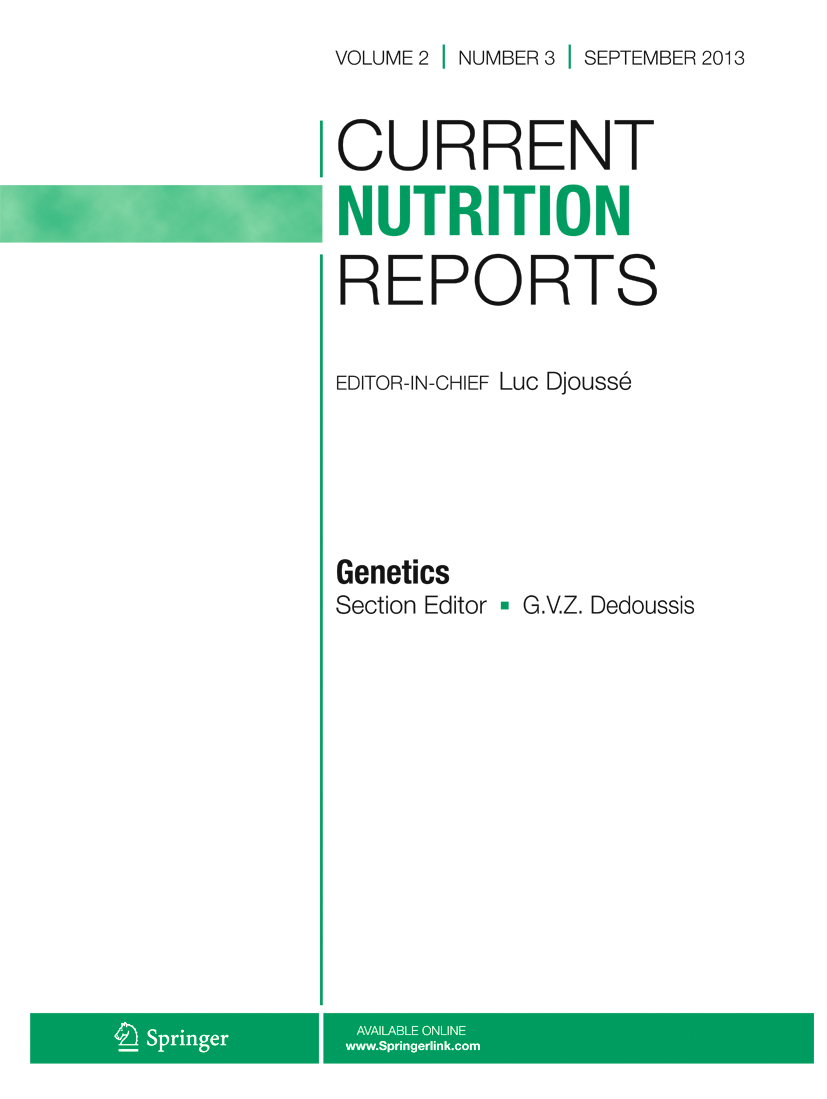
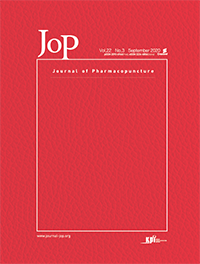
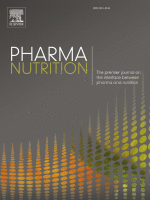

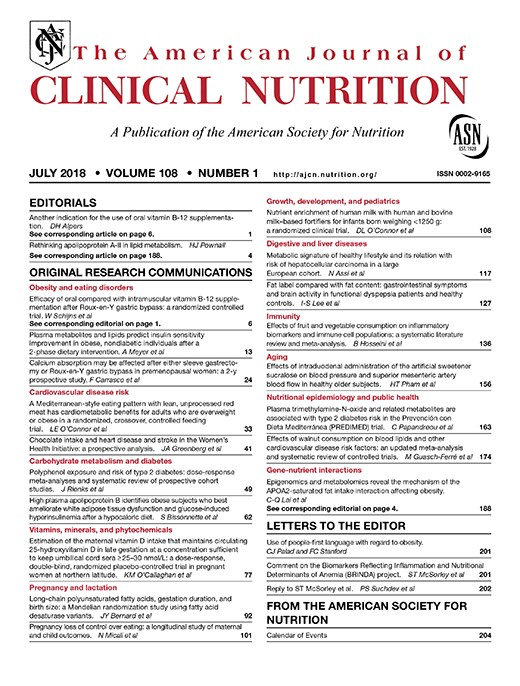


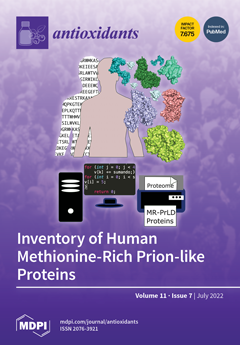

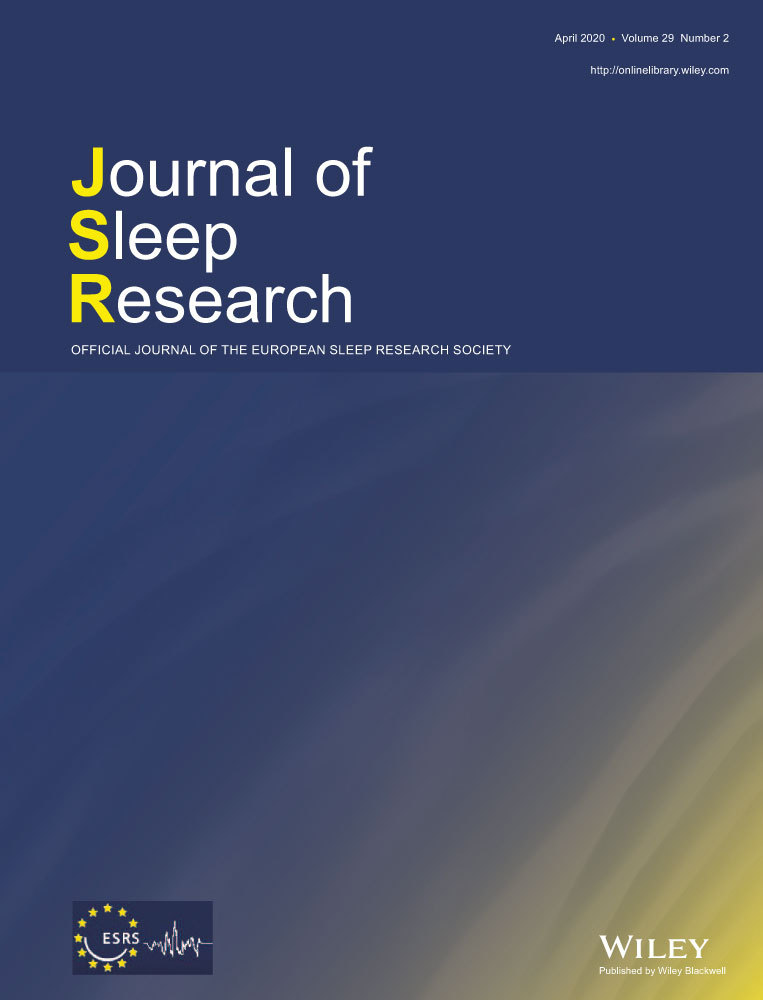


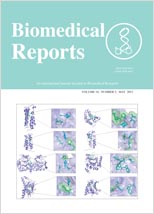
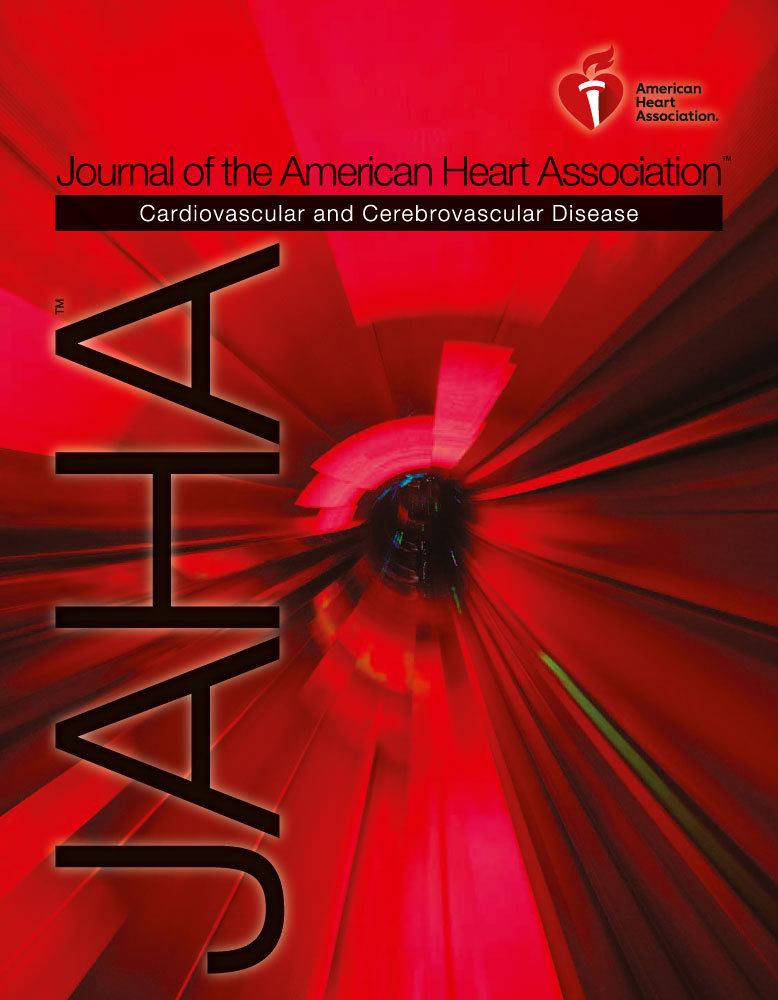
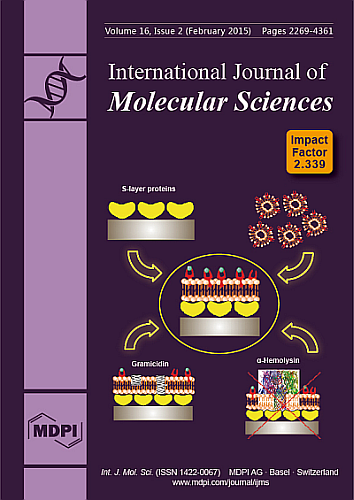


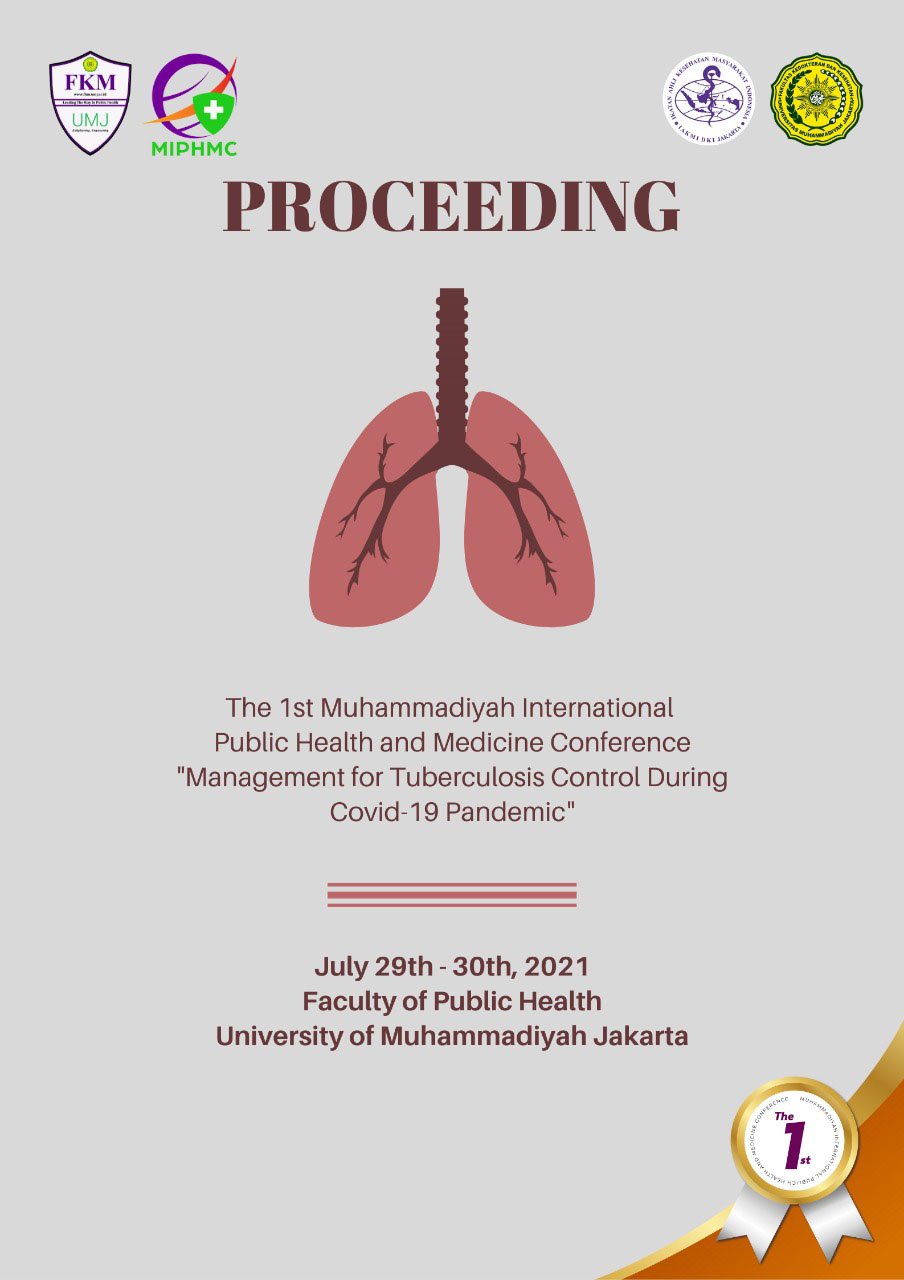

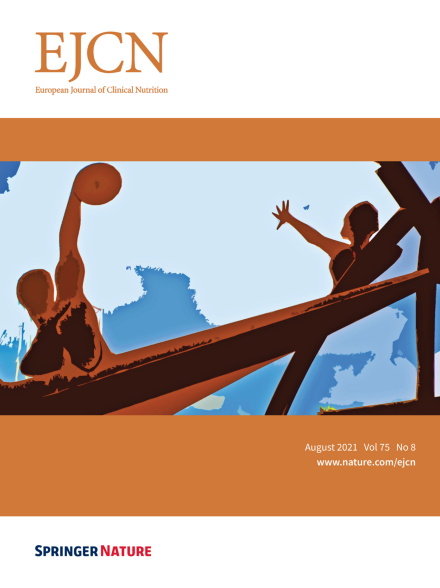
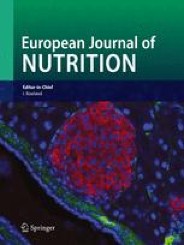
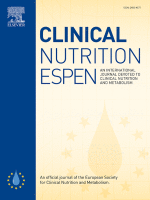
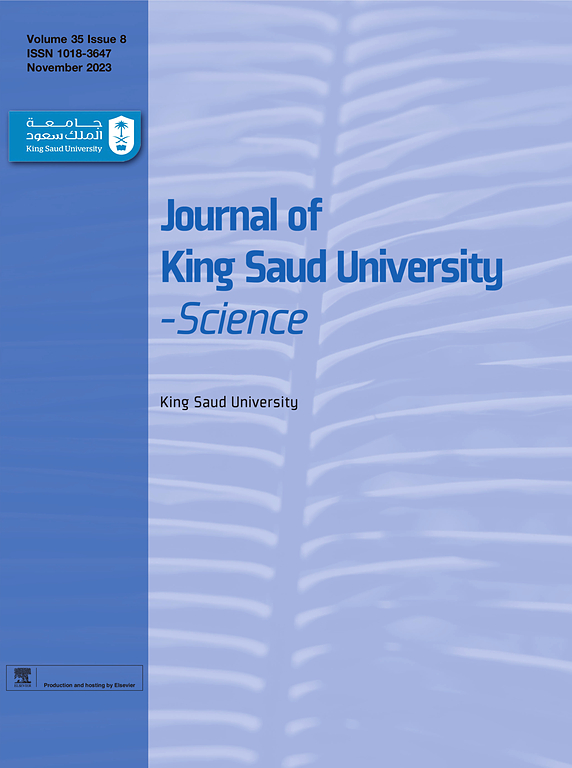
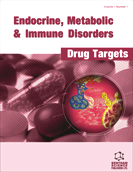



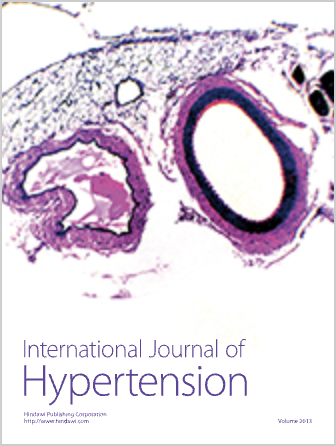


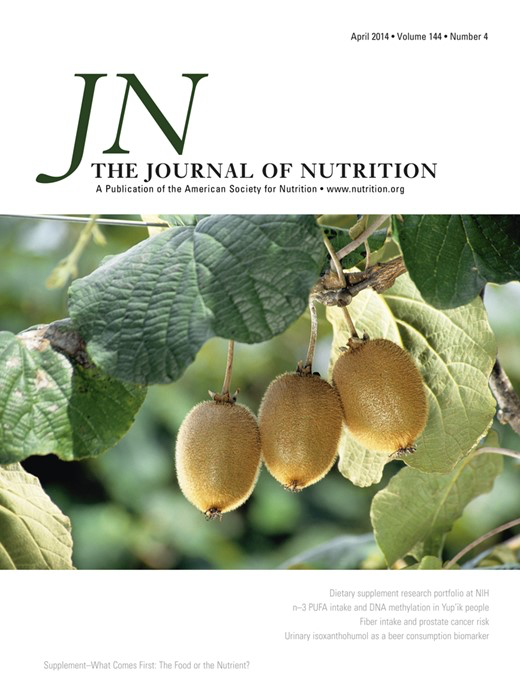

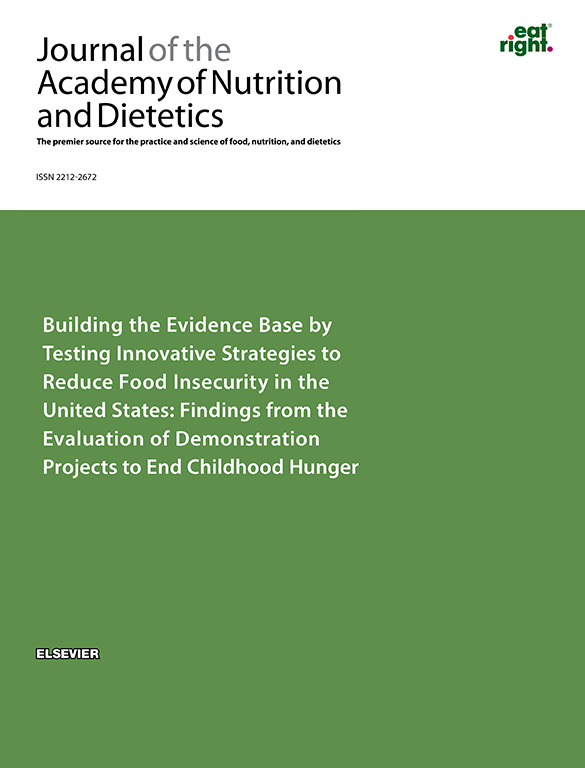
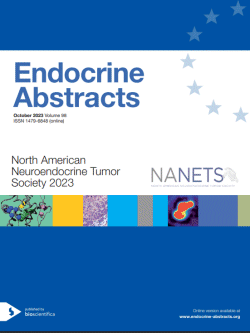
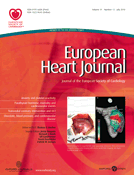

An excellent review article highlighting the benefits of this very underappreciated yet highly nutritious fish. For example, the calcium content in 100 g of sardines is equivalent to the amount found in ~ 400 ml of milk (38% of the recommended dietary allowance). Sardines also contain a considerable amount of iron (2.9 mg/100 g) comparable to that of meat and higher than other commonly consumed types of fish. —Jinnan C 20 Oct 2023